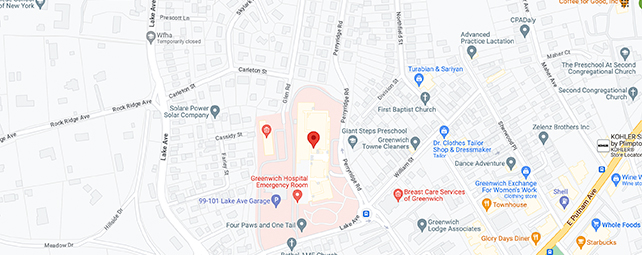Bariatric patients receive a “tool” with their bariatric surgery. In order to use the tool properly and achieve success, significant lifestyle changes have to be made. Diet changes as well as changes to daily routines and the inclusion of an exercise program leads to weight loss success. Dr. Neil Floch and his team provide you with continuing support and guidance throughout your post-operative period and beyond.
Although there will be some discomfort from the surgery, it is essential that you get out of bed and start walking on the same day as your surgery. This activity is imperative in preventing surgical complications, such as blood clots. Most bariatric patients recover from surgery without experiencing complications.
Patients having been diagnosed with sleep apnea will remain on breathing monitors in a monitored bed until they’re capable of breathing well on their own.
The Laparoscopic Gastric Sleeve usually requires a two night hospital stay Laparoscopic Roux-en-Y Gastric Bypass procedure usually requires two days. Laparoscopic Adjustable Gastric Banding patients will go home the same day or remain overnight. Thorough instructions for your care at home are provided prior to your hospital discharge. An appointment will be scheduled to see Dr. Floch approximately one week after your bariatric surgery.
In the Hospital
After surgery Dr. Floch will visit with you in the recovery room. But, because of anesthesia you may not remember it, so you he will speak to your family as well.
You are expected to stay in the recovery room for approximately 1-2 hours. During that time some nausea and/or pain may be experienced. Drains may be visible protruding from your belly and will be removed before you go home. Those with sleep apnea will remain in the recovery room for 3 hours. Those required to remain in the hospital overnight or for more than one day, are transferred out of the recovery room to a room on the post-surgical floor.
You will be asked to sit up and perform deep breathing exercises using an incentive Spiro meter. You will be started on small sips of water, and asked to stand up and walk. Walking as soon as possible is essential to prevent the formation of blood clots.
If you are able to tolerate small sips of water the day of surgery, you will be advanced to stage one of your diet. Once Dr. Floch determines that your digestive system is functioning properly, you will be discharged. Any drains or catheters will be removed prior to your discharge.
At Home After Surgery
Following all of the instructions you were given will enable you to avoid complications and achieve success. Following the proper diet stage and taking a daily multivitamin and any other nutritional supplements as directed are part of the key to success.
You will typically be out of work for 3 days to 1 week following a lapband procedure and 1-2 weeks following a gastric sleeve and gastric bypass.
If you hadn’t already scheduled your follow-up appointment following surgery, we ask that you please call our office to do so.
We have made available to you a Daily Intake Log and Your Personal Weight Loss Log to assist you on your weight loss journey. Please click on each log to download a copy.
If you happen to experience any of the following symptoms, please call our office and request to speak to Dr. Floch:
- Shortness of breath
- Persistent nausea or vomiting
- Vomiting a bright red or dark brown liquid (go to the emergency room)
- Increased redness, swelling or foul-smelling discharge at incision site
- Increased soreness or pain in your incision(s)
- Any new or unusual pain in your abdomen, chest or legs
- Temperature higher than 101oF
- Passage of very dark stool
- Acute depression or negative emotions
After Surgery Guide
Nutritional Guidelines Purpose:
This diet is designed to restrict caloric intake to produce desired weight loss, to help develop appropriate eating habits and to prevent disruption or obstruction of your pouch. In addition, it is strongly recommended to pursue weight loss in preparation for surgery. Even a small amount of weight loss may contribute to a decreased surgical risk during bariatric treatment.
Stages of Diet
Stage 1: Clear Liquids: Follow for 2 nights while in hospital
Stage 2: Full Liquids: Follow for 2 weeks, starting day of hospital discharge
Stage 3: Pureed Foods: Follow for 1 week, after 2 weeks of full liquids
Stage 4: Soft Foods: Follow for 1 week, after 1 week of pureed foods
Stage 5: Advanced Diet: Follow indefinitely after 1 week of soft foods
Dumping Syndrome
Dumping syndrome is fairly common following bariatric surgery, particularly if you don’t follow all of the special dietary instructions given to you. The signs of dumping syndrome are:
- Nausea
- Vomiting
- Bloated stomach
- Diarrhea
- Excessive sweating
- Increased bowel sounds
- Dizziness
- Emotional reactions
Bariatric Surgery Will Make a Tremendous Change in Your Eating Habits
Rely on close family members and friends for support and encouragement, as this may be an emotional time in your life. It is important that you keep a healthy mind and body. keep your follow-up appointments, exercise and learn to cope with emotional difficulties. Your health care team will also be there to guide you after your weight loss surgery.
Incision Care
Even though you may have staples or steri-strips on your incision when you are discharged, you may wash your abdomen in the shower. Avoid soap because it may burn, Do not take a tub bath or use a Jacuzzi, pool or hot tub until your incision is fully healed. It can take 1-2 weeks to make that happen. Call our office if you experience any of the following:
- Increased redness, swelling or foul-smelling discharge at incision site
- Increased soreness or pain in your incision
- Temperature higher than 101oF
- Any new or unusual pain in your abdomen, chest or legs
Steri-strips will fall off after 7-10 days. If they do not, you may remove them yourself in the shower. Staples are rarely used but will be removed in the office after 7-10 days. If you develop a red rash on your wounds that is the shape of the bandage, it can be treated with hydrocortisone cream.
Follow-Up Visits
Regular follow-up visits are scheduled during the first year after weight loss surgery to check your overall physical and mental health, metabolism and nutritional status. It is crucial to your health that you keep these follow-up appointments. Many patients may decide to have plastic surgery one to two years after their weight loss to remove skin folds around the abdomen. Your first follow-up visit with your bariatric surgeon will be seven to 10 days after discharge. Subsequent visits for gastric bypass and gastric sleeve patients are scheduled for one month, three months and every three months there after for the first year. After the first year, follow-up visits are required every three months and then every six months after the second year. Band patients will be seen 5-10 days following surgery and then once a month for the first year. During the second year they will be seen every three months and then every six months during the following years. You also will be scheduled to see the dietitian and psycho ogist about one month following discharge and for regular follow-up visits to help you adjust to life after bariatric surgery.
A Lifetime Commitment to Follow Up
With a weight loss treatment, one of the most important components is the commitment to follow-up. We look forward to working with you in reaching and maintaining your health goals. Compliance to a followup scheduled is very important. Regular follow up visits are essential to evaluating your health and instrumental in achieving your weight loss goals. During visits, we will evaluate your compliance with lifestyle changes and validate progress.
Your Required Follow-Up Visit Pattern After Bypass and Sleeve Surgery is as Follows:
- Five to seven days – initial post-operative evaluation and wound check
- One month – physician evaluation; psychological and nutritional follow up as needed
- Three months – assessment of diet, compliance with vitamins and exercise; psychological follow up as needed, blood work up
- Six months – physician evaluation and blood work
- Nine months – assessment of diet, compliance with vitamins and exercise
- Twelve months – physician evaluation and yearly blood work
- Yearly for life – physician evaluation and blood work. Missing office visits could compromise the outcomes of your weight loss surgery. Long-term follow-up care is essential for success.
Laparoscopic Adjustable Gastric Banding Patients are Seen as Follows:
- Five to ten days – initial wound check
- One month – first band adjustment
- Second month – band adjustment and fill
- Third month – labs and fills
- Four to five months – nutrition and exercise assessment, band adjustment and fill
- Six months – labs and fills
- Seven to eleven months – band adjustment and nutrition and exercise assessment
- Twelve months – labs and fill
- Second year – every three months – full evaluation and possible adjustment
- Third year and lifetime – every six months – full evaluation and possible adjustment
Exercise
Exercising helps bariatric patients lose weight more rapidly after surgery. Establishing a gradual exercise and physical activity program is a key to helping achieve desired weight loss. We recommend that our patients begin an exercise program as soon as our surgeon feels that it is the appropriate time to do so.
Post-Operative Exercise Following bariatric surgery, the patient takes in fewer calories. As a result, the body, in its search for energy, could begin to burn muscle instead of fat. Exercising alters the metabolism so the body would burn fat instead of muscle.
In addition to helping achieve desired weight loss, an exercise program will also boost your metabolism, decrease risk of cardiac disease, lower blood pressure, tone muscle and increase energy.
Daily physical activity is also instrumental in helping achieve weight loss. Walking, gardening and house cleaning are just a few of our daily activities that will burn calories and contribute to helping lose weight.
We realize the importance of an exercise and physical activity program but will only suggest it when we feel you are physically ready for it.
It will be done in graduated stages so that you will be able to do it without experiencing difficulty. Among our support groups is one that specializes in exercise. Our doctors will guide you through your exercise and physical activity program and will always be available to answer your questions and offer you support and encouragement.
Diet Restrictions
As with most operations, bariatric surgery also has restrictions that are necessary to follow in order to expedite the healing process and to help achieve successful results.
Our surgeons and dieticians will provide you with specific diet guidelines to follow immediately after surgery and for long-term weight loss. Since bariatric surgery alters the way the body’s digestive track works, patients have to slowly move into a new diet that will emphasize portion size and nutrition. For the first six weeks the diet will consist of liquid/pureed foods because the digestive track needs time to heal. This includes foods that are liquid to soft in consistency. Discomfort and complications can be avoided and desired weight loss achieved by following the bariatric diet provided.
Physical Activity Restrictions
Exercise and physical activity programs help achieve desired weight loss. However we will only suggest it when we feel you are physically ready for it. The day of your bariatric surgery you will be asked to stand or walk. During your hospital stay you will be asked to take short walks. Driving should be avoided for two weeks after returning home if you continue to take postsurgical medications that can make you drowsy. Depending on the type of bariatric surgery you have, you will be home from work anywhere from one to six weeks. You should be back on your regular physical routine after six weeks. Our surgeons will provide you with an exercise and physical activity program that increases in stages following your surgery so that you will be able to handle it without difficulty. Beginning an exercise program in modulation and increasing it in time will help you speed up the weight loss results you want to achieve.
Pregnancy Restrictions
It is safe to become pregnant after gastric bypass surgery but it is recommended that the patient wait until 18 months after the surgery when weight stabilizes. The reason we ask for this delay is to prevent the mother and newborn from suffering possible malnutrition.
After band surgery you do not have to wait an extended time to become pregnant. The band can be adjusted so that you do not lose too much weight too fast.
After weight loss surgery problems could occur to the growing fetus because the body goes through potentially stressful changes with substantial nutritional upheaval. Studies have found that patients can experience deficiencies in B12, iron, calcium and vitamin D after undergoing bariatric surgery. It is also possible that patients can experience protein-calorie malnutrition and fat malabsorption. It is quite common for patients to experience nausea after bariatric surgery and it can be exacerbated by morning sickness related to pregnancy. This would increase the difficulty of getting the nutrients needed during pregnancy.
















